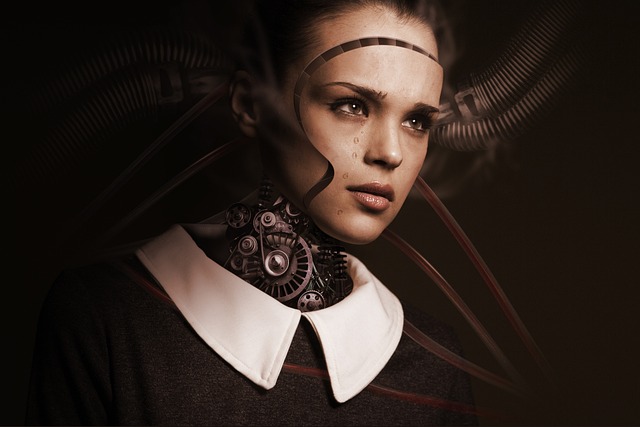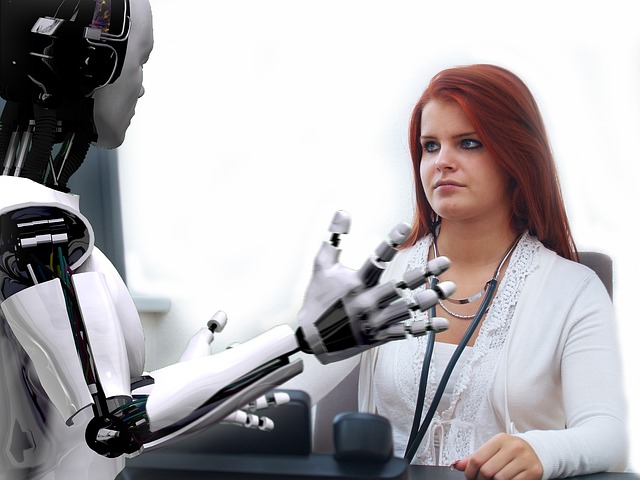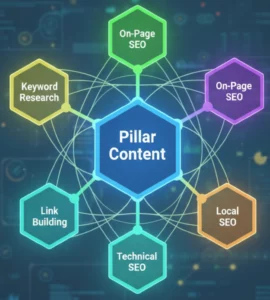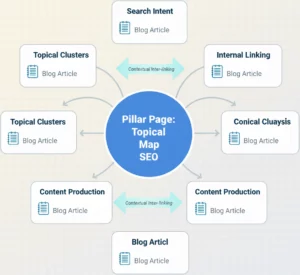
Artificial Intelligence (AI) is revolutionizing many sectors, including writing. AI Writers are now an inalienable reality in the content marketing and search engine optimization (SEO) ecosystem. But what role will these technologies play in the future? Do they represent a complementary tool or a threat to human writers?
Table of Contents
ToggleDefine AI Writers and their current place in the writing industry
AI Writers are artificial intelligence platforms designed to generate written content, from simple articles to complex communication materials. These tools use advanced algorithms to produce text that often mimics human creativity and judgment to the point where it becomes difficult to distinguish AI work from that of a professional writer.
The dilemma: replacement or support for human writers
It’s legitimate to wonder about the future of human writers in a time when AI can write a quality article in just a few seconds. However, it is important to consider that AI Writers can also play a supportive role by providing suggestions and handling repetitive tasks, allowing writers to focus on more creative projects.

Technological evolution and impact on writing
AI writing tools available today
Currently, services like Grammarly or the Boss Mode feature in some writing software help optimize grammar and style, meaning a significant time-saving for professionals. Platforms also offer automated rewriting or capabilities to generate social media content, simplifying marketers’ lives.

How AI transforms writing and editing processes
Writing processes are undergoing significant changes with the advent of AI. Not only do these tools offer quick content creation, but their ability to handle editing and language error correction relieves writers of tedious tasks. This enables production on a scale never seen before.
AI acceptance among writers
Confronting AI reality in the literary world
Writers must recognize the growing presence of AI in their world. While some resist this change, arguing a potential loss of authenticity and business writing, others see AI as an opportunity to focus on deeper thoughts and more complex project conception.
Embracing AI benefits while staying authentic
It is possible to balance AI usage while preserving human authenticity. Writers can collaborate with AI Writers to refine their prose, while humans bring their unique experience and life stories to the writing.

Finding your place in an AI-assisted writing world
Identifying and exploiting niches untouched by AI
Despite AI’s growing sophistication, some niches remain better served by human intervention. Areas such as emotional, poetic, or culturally rich writing continue to require a sensitivity that only a human approach can offer.
Strategies to diversify and innovate in response to AI
Faced with this technological emergence, writers must explore strategies to diversify and innovate. The key is to view AI not as competition but as an ally that can contribute to increasing the added value of their work by focusing on unique projects that require personal judgment and depth.
Towards a collaborative future with AI
Integrating AI into the creative process without losing human essence
Imagine a future where AI Writers and humans work hand in hand, with AI generating base ideas that writers could then enrich with their own creativity and life experience. This symbiosis could define a new model of collaborative writing.
Complementary roles of AI and writers in the future
Let’s envision a future where AI and human writers’ roles are clearly defined and complementary. AI could handle large-scale raw content generation, leaving writers to personalize and humanize texts, adding a unique depth.

Challenges and ethical considerations
The consequences of homogenized content produced by AI
The question arises: what are the implications of content uniformity generated by AI? Isn’t there a risk of losing the distinctiveness and nuances that only a human touch can bring? This is a real concern that publishers and content creators must remain vigilant about.
The impact of AI on individual and collective creativity
It’s crucial to consider AI’s potential impact on individual and collective creativity. While AI can relieve creators from certain constraints, it can also lead to creative laziness if one comes to rely too heavily on its capabilities.
Preparing for the future
Investing in skills that cannot be replaced by AI
As in any sector, the key for human writers lies in investing in skills that cannot be automated. There is richness in works that reflect human emotions, lived experiences, and the ability to engage an audience on a given topic.

Encouraging responsible AI usage that values human talent
It’s essential to adopt a responsible approach to AI in writing, one that values and complements human talent rather than seeking to replace it. A wise use of AI can lead to richer, more varied, and more meaningful works.
FAQ
Can AI Writers really replace human creativity?
It is unlikely that AI will ever match the complexity of human creativity. While AI Writers are powerful, they are still far from achieving the diversity and subtlety of human thought.
How can writers benefit from using AI Writers?
Writers can use AI Writers to unlock ideas, edit drafts, or improve the linguistic quality of their texts. This allows them to focus on the most creative and strategic aspects of their work.

What are the risks of relying too much on AI Writers for content?
Over-reliance on AI Writers can lead to generic and soulless content. It’s important for writers to continue injecting their personality and expertise into their works to distinguish them.
AI Writers represent an exciting development in the world of writing and SEO (Search Engine Optimization). Their integration must be thoughtful to fully benefit from their advantages while preserving the uniqueness of the human touch. The question isn’t whether AI will replace writers, but how writers can use AI to create a future where
technology and humanity walk side by side. The challenge now is to continue this reflection and shape a collaborative model where everyone finds their place.

Eric Ibanez
Co-fondateur de Hack The SEO
Eric Ibanez a créé Hack The SEO et accompagne des stratégies SEO orientées croissance. Il est aussi co-auteur du livre SEO pour booster sa croissance, publié chez Dunod.
Suggested Articles




